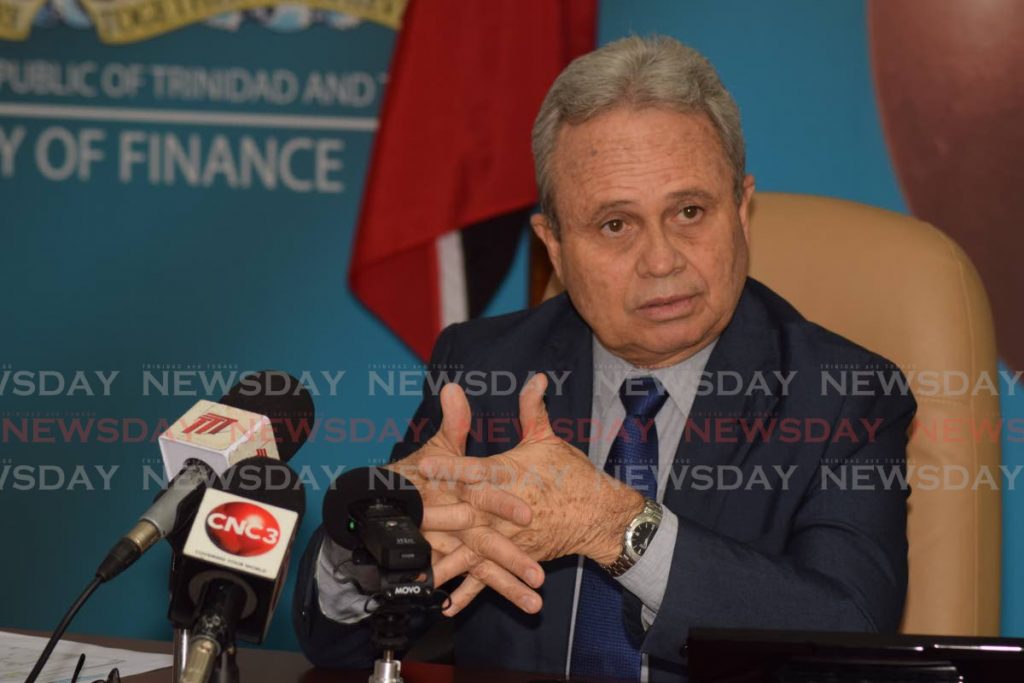Imbert: Prevailing public opinion is 'all politicians corrupt'

Two days after he was first installed as Minister of Works and Transport in December 1991, Finance Minister Colm Imbert recalled, during a virtual discussion on transparency in the region on Wednesday, he was accused of corruption.
“I hadn’t even warmed my seat at my desk properly yet, I hadn’t even written a line with a stroke of my pen and I was being accused of corruption.
"So, welcome to the club,” he told Barbados economic affairs minister Marsha Caddle, also part of the panel, which was hosted by the Andean Development Bank (CAF).
Imbert’s anecdote was in response to a question from the moderator, CAF vice-president for knowledge Pablo Sanguinetti, about citizen engagement and awareness against corruption. In Trinidad and Tobago, Imbert said, “There’s this terrible distrust of politicians.”
“We have a very aggressive social media, I don’t know what to call it, social media army. It is extremely aggressive, and every single day there is some allegation of corruption on Facebook, on Twitter, on Instagram, on Telegram, wherever, WhatsApp. Every single day there’s something going around about somebody in government or somebody in the state sector is stealing something.
"So our citizens are very well sensitised. They are accusing us every single day,” Imbert said.
Distrust of politicians was par for the course, he said, but one thing he and his colleagues have discovered was that the way to deal with citizen awareness was not necessarily with sensitisation to corruption because the prevailing opinion is that all politicians are corrupt.
“So they are always accusing us of corruption. It’s not that (awareness), it’s the response, and this is what I have learnt in my 29 years. It’s not what they say, it’s how you respond to the accusations. And once you can provide proof (or) better information than the people who are accusing the politicians of corruption, it solves the problem.
"And too often I find governments just don’t say anything, they don’t respond to anything. They say, ‘Ah, it doesn’t matter, nobody cares’ –and then perceptions of corruption become endemic.”
The best way, then to counter is to provide better information to the public – about procurement, about the decisions that government has taken about controversial matters.
“Provide as much information as possible, as often as possible. So, there’s another side of the story because if you don’t do that then the untruths would take root,” he said.

Comments
"Imbert: Prevailing public opinion is ‘all politicians corrupt’"